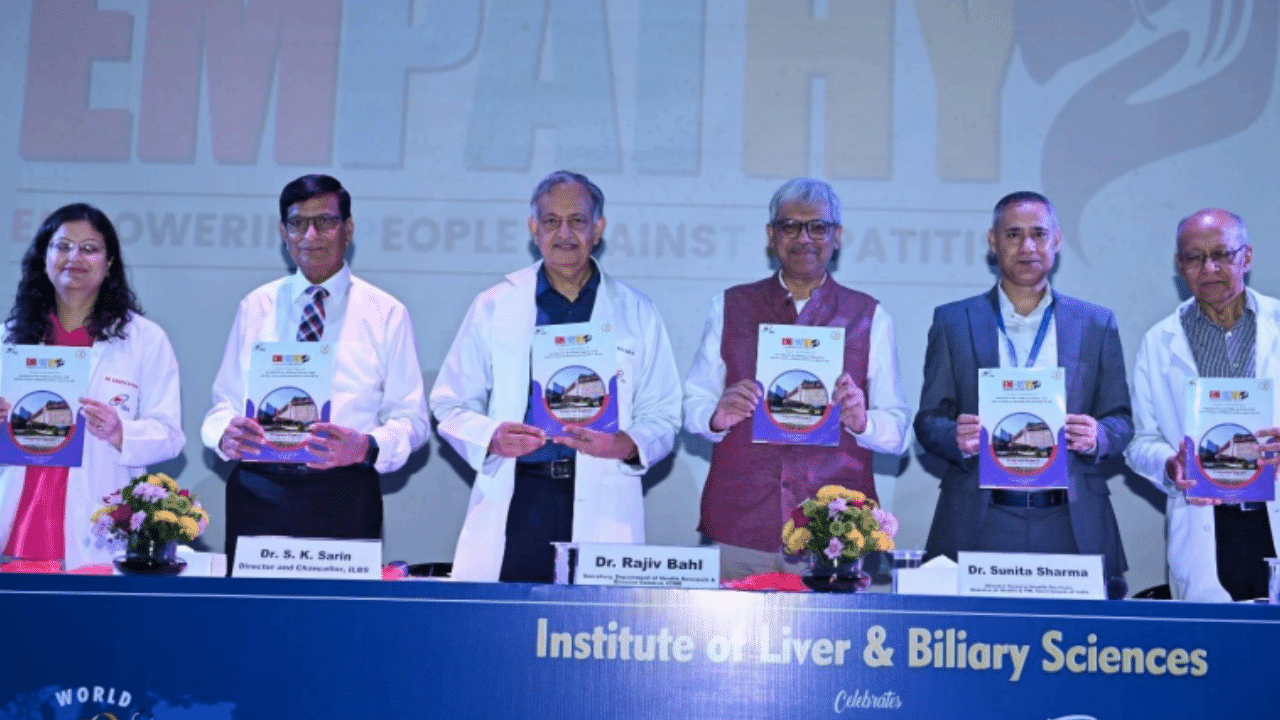New Delhi: The Institute of Liver and Biliary Sciences (ILBS) observed World Hepatitis Day with public awareness activities, liver health checkup camps in preceding week and a high-level advocacy event held at the APJ Abdul Kalam Auditorium, Delhi, reaffirming its commitment to eliminating viral hepatitis and promoting liver health for all in alignment with the World Health Organization’s (WHO) goal of eliminating viral hepatitis by 2030. Themed – “Breaking barriers to triple elimination”, the event brought together leading voices in public health, policy, and research and served as a dynamic platform for dialogue, collaboration, and action.
The gathering saw participation from dignitaries including Dr. Rajiv Bahl, Secretary, Department of Health Research and Director General, Indian Council of Medical Research (ICMR); Dr. Shiv Kumar Sarin, Director and Chancellor, ILBS; and Dr. Badri Thapa, Team Lead for Communicable Diseases at WHO India.
Dr. Rajiv Bahl, the Chief Guest for the occasion, underscored the national vision linking health to development. We cannot talk about a Viksit Bharat without strengthening healthcare systems. Hepatitis elimination is a critical step in that direction, he said. Speaking candidly, Dr. Bahl added, I usually dont attend ceremonial functions, but I came here to meet the scientists and researchers. ILBS is not just a treatment facility it is among the finest laboratories for liver research in the country. Dr. Bahl emphasized the vital role of research in addressing public health challenges and encouraged all medical professionals to pursue doctoral studies and contribute to research alongside their clinical responsibilities.
Delivering the keynote address on “Pathway to Liver Cancer Prevention through Hepatitis Elimination.” Shiv Kumar Sarin emphasized the silent but severe consequences of hepatitis. Cancer can be reasonably recovered by avoiding fatty liver. Prevention is possible, and we must act early, said Dr. Sarin. He further highlighted the preventable nature of Hepatitis B, stating, Hepatitis B is largely transmitted from mother to baby. With timely vaccination, this transmission can be effectively stopped. He also highlighted the importance of exercise in preventing not only liver cancer but other forms of cancer as well. He also called on ICMR for establishing a national registry for liver diseases and reaffirmed the ILBS readiness to respond to epidemics and national health emergencies.
He also commended the leadership of Dr. Sarin, noting that his work deserves deep appreciation for integrating cutting-edge research with real-world medical technology. Dr. Badri Thapa, representing the World Health Organization (WHO), reiterated WHOs continued partnership with ILBS and praised the institute for aligning with the global target of triple eliminationof HIV, syphilis, and hepatitis Bfrom mother to child. Dr. Thapa stressed the importance of increasing awareness, strengthening healthcare infrastructure, and prioritizing high-risk populations in hepatitis elimination programmes. He highlighted that success in eliminating viral hepatitis hinges on integrating care into the primary healthcare system.
The event was preceded by a free liver health screening camp, which offered fasting blood sugar, lipid profile, liver function tests, and FibroScan diagnostics for the public. A poster competition and community outreach programs across July further amplified the campaign’s message. World Hepatitis Day is globally observed on July 28th to raise awareness about viral hepatitis and its devastating impact. ILBS, a WHO Collaborating Centre, continues to lead Indias fight against hepatitis through research, policy support, and public
engagement.
